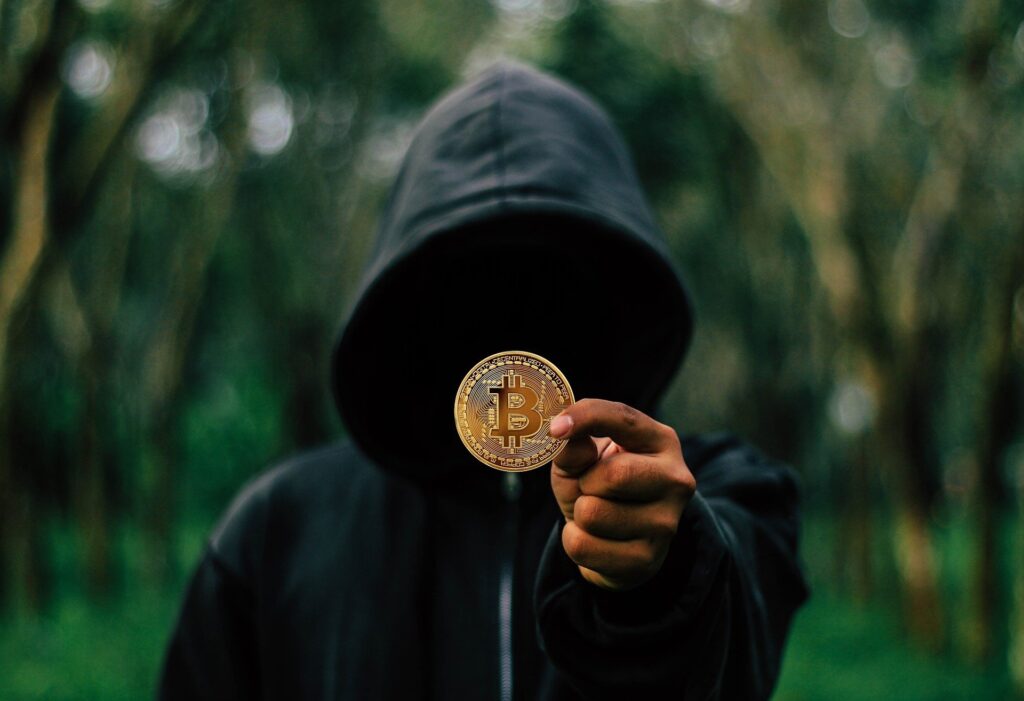Bitcoin Scam How To Spot and Avoid being Scammed
Why Bitcoin Scams? … Bitcoin and its value have gone up and down then up again, anyone investing in Bitcoin has been taken on a rollercoaster of a ride. To some Bitcoin has become a store of value much like gold, to others they view it as nothing more that a Ponzi scheme. Is Bitcoin in a bubble which is going to burst the way of many historic bubbles or perhaps it’s here to stay.

With Bitcoin reaching heady heights of $57,000, this has attracted a lot of attention. Many do not understand what the blockchain is or the idea behind bitcoin. That hasn’t stopped the early adopters often viewed as the geeks or cleaver investors who turned a few dollars into millions which the amazing price rises.
However, with popularity comes the criminal element. With so many people chasing the cryptocurrency boom, many fall victims to the grifters of the internet. Many believe the benefits of cryptocurrency are the being unregulated by governments and their privacy, but those are fertile grounds for those who wish to bitcoin scam others.
So, if you’re new to cryptocurrency, the age-old scams are also here, to educate yourself to the potential scams around you.
By its very nature Bitcoin and other Cryptocurrencies are volatile investments. So, stay alert for potential scams and trust your instincts, failing to do so increases your chances of losing money by falling for a scam. If something seems too good to be true, it probably is.
Fake Bitcoin Exchanges
There is a particular bitcoin scam which is doing the rounds, the website says you can earn $100 per day or some other enticing amount. And all you have to do is buy bitcoin from one site, use that to exchange to Ethereum at another, then trade it back making a profit from the difference in exchange rates between the two sites.
Not what makes this seem legitimate is they recommend using a Blockchain wallet, they recommend Changelly as part of the plan, both of which are well know and legitimate cryptocurrency business. However, the middle exchange is a scam exchange with accepts the Bitcoin deposit but doesn’t return the Ethereum promised.
This scam works by building trust by using well know legitimate sites as part of the scam.
These are small scan, back in 2017 there was a scam exchange called BitKRX, which pretended to be one of the largest trading platforms in South Korea, it took their money and run.
This is one the easier scams to avoid, stick to well-known exchanges, and ignore the flashy adverts.
Ponzi Schemes
Named after one Charles Ponzi, he was certainly not the first to use this scheme, but was the most famous at the time. More recently there have been some high profile cases such as Bernie Madoff.
Ponzi is basically a pyramid where new investors money is used to pay the returns of the old investors, there is generally no real investment or product behind the scheme, although sometimes there is.

BitClub Network started their bitcoin scam in April 2014 and ending December 2019. They referred internally to investors as dumb sheep. The scheme netted them $722 million.
They sold shares in a cryptocurrency mining pool, trouble is the pool didn’t exist. The ‘mining earning’ were fictitiously updated to give the impression of earning from the mining pool.
The investors were rewarded if they brought new members into the scheme. Ultimately 5 people are going through the American Justice System.
Fake Cryptocurrency
New Cryptocurrency ICO are very common, offering to be the alternative to Bitcoin or having features to make them different in some way.
This has led to something of a common scam, by creating a sense of urgency, that it’s too late to profit from bitcoin, but if you invest in our coin we’re going to the moon.
When in reality it just a ruse to take people money, redirect the fund into their personal bank accounts, then close the project and run.

An example of such a scam is My Big Coin, which took investors for $6 million.
Another is OneCoin, which Dr Ruja called the “Bitcoin Killer”, with lots of glitz and glamour, putting on presentations all around the world, pulled in investors from all over the world. It’s possible they pulled in £15billion. Then Dr Ruja disappears along with lots of the funds.
OneCoin has always denied wrongdoing, however Dr Ruja has been charged in her absense, her brother has been charged and a lawyer has been accused of laundering money.
The OneCoin story is a really interesting one and well worth reading up on.
Bitcoin Doubler
Bitcoin Doublers and variations are websites they say if you send 0.01 Bitcoin to an address you’ll get 0.02 Bitcoin in return. You send your 0.01 Bitcoin, wait, then wait some more, then wait some more, and wait. Yeah you’re 0.01 Bitcoin has just gone into the scammers pocket.
Bitcoin Generator
Bitcoin Generators are websites with a slider bar to say how much bitcoin you want to generate. They often say they hack the blockchain or some other variation, you get an animated box of the generation and then it asks you for a miners fee to release the generated bitcoins.
You send the miners fee and magically it appears in the scammer wallet, but the generated bitcoins never appear in your’s, that because they were never generated, just an elaborate ruse to get your coins.
Bitcoin Mixer
Much like fake exchanges there are fake mixers. A mixer is supposed to split coins down mix them and combine them back up to effectively hide the trail. However the fake mixers just take your cryptocurrency and run.
Old School Scams
Scammers are up to their old tricks, making calls, texting or e-mailing claiming you owe tax and you need to pay immediately, fools enough people. Only they are after bitcoin rather than cash which they traditionally have to send via Western Union or bank transfers.

However, no government agency is going to ask for payments in Bitcoins. Still many people still fall for this one.
Malware
Malware has long been a favorite of skill con artists, even more so now that they can buy tool to create them without knowing any programming knowledge. It’s now easier than ever to create malware.
Malware can get on your computer in so many ways, from e-mail to social media all it takes is to click on the wrong link and it’s downloaded to your computer.

Depending on the Malware it will try to do a number of different things such as hijacking your browser to display adverts or divert your search so the scammer gets a financial reward. Others will log your key pushes with the aim of gaining your login details for financial sites. Some install mining software to mine Monroe in the background slowing down your computer. More advanced ones make your computer a slave in a bot-net doing things like sending spam e-mails or attacking websites with Denial of Service attacks.
Be careful when getting e-mails from people or companies you don’t know or your visiting websites your unfamiliar with.
Pump-And-Dump Scam
For as long as there has been a stock market, there have been pump and dump scammers.
Insider trading is illegal, however the scammers prey upon the gullible, by appearing to have insider information and hot tips which can’t lose.
The scammers will buy into something for pennies, this will cause the price to rise, they then pull other investors in and cash out as the price rises even further. Sadly, for the other investors, the price corrects and they are nursing a big loss.
With the introduction of Bitcoin and other cryptocurrencies these are fertile markets for scammers to target. Given the unregulated nature of crypto the scammers are brining a new twist to this age-old scam.
Digital technology these days, it’s easy to clone a website, they’ll produce fake news stories or celebrity endorsements, sometimes they will mix in a little of reality to help sell their story. Because their digital creations look so real, unless you’re on the look out of scams, it’s easy to get sucked in.
There is a saying, if it’s too good to be true, it’s not. So when you see those tips, do some research. Try not to get involved in groups who use this scam promising you big returns with no risk, because there is risk.
The US Government has published a guide due to their concerns, you can see that over at the U.S. Commodity Futures Trading Commission

